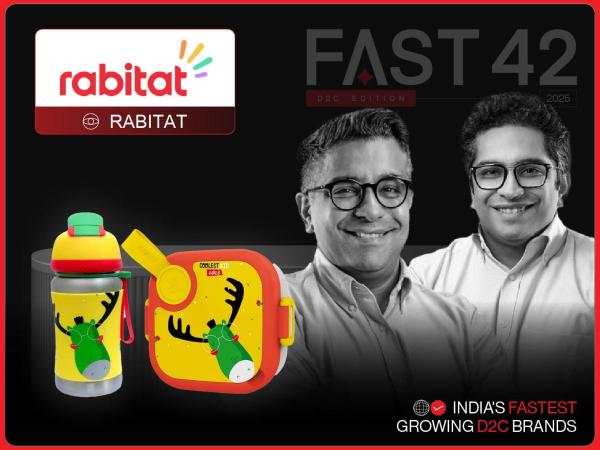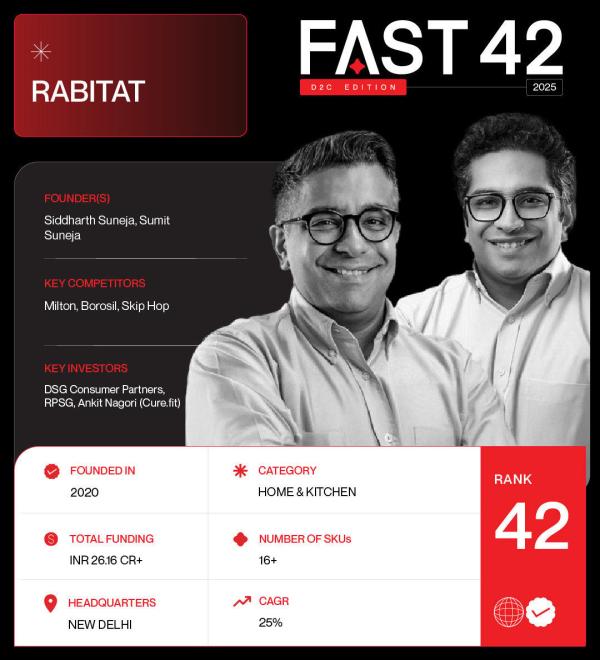

When Siddharth Suneja, a serial entrepreneur from New Delhi, became a father in 2019, he met with a dearth of high-quality products for kids in the Indian market.
This was when he knew that he was looking at a significant gap, many parents like him were struggling to get their hands on quality kids’ essentials, including lunch boxes, water bottles and backpacks.
Committed to bridging this gap, he joined forces with his brother, Sumit, and launched Rabitat in February 2020.
At the outset, Siddharth’s vision to offer a range of safe, high-quality food-contact products, designed for kids between two and eight years of age, fuelled their endeavour. Today, the brand commands 16 SKUs, including tiffin boxes, insulated water bottles, feeding bottles, and training cups, just to name a few.

In the last four years, Rabitat has carved out a niche in the kids’ food storage container market in India. Along with selling via its website, platforms like Amazon and FirstCry serve as its major sales channels. The D2C brand leverages quick commerce platforms to boost its sales.
Targeting a discerning segment of Indian parents — who are often highly skeptical and seek only the best for their children — Rabitat aims to earn their trust by providing BPA-free, safe, and high-quality baby and toddler products.
The brand operates in the local food storage container industry that is projected to grow by more than . Rabitat, with its niche market positioning, is eyeing to grab a juicy chunk of this growing opportunity.
Rabitat’s INR 100 Cr AmbitionNotably, the company’s revenues for the financial year 2023-24 (FY24) stood at INR 16 Cr, up 23% from INR 13 Cr a year ago.
For FY25, the brand is expected to close its top line at INR 32 Cr, marking a 100% growth compared to FY24. One of the key reasons behind this is the brand’s shift to manufacturing in India, with over 80% of its products now made within the country.
In the long term, the company aims to expand its market presence while strengthening the brand in its strong ecommerce sales channels. The company is also eyeing to broaden its quick commerce availability to reach its customers within minutes.
By FY26, Rabitat expects to cross the INR 100 Cr mark in annual revenue. It aims to emerge in the black by May 2025.
However, meeting aspirations won’t come easy as the brand will have to lock horns with traditional players like Milton and Borosil and newer brands such as Basil, which, too, have set their sights on churning INR 100 Cr in ARR by next year.
While this industry gives significant leeway to make strides, it also demands continuous innovation. As of now, it would be interesting to see how Rabitat places its aces to win against its competition.
[Authored By Anirudh Trivedi]
The post appeared first on .